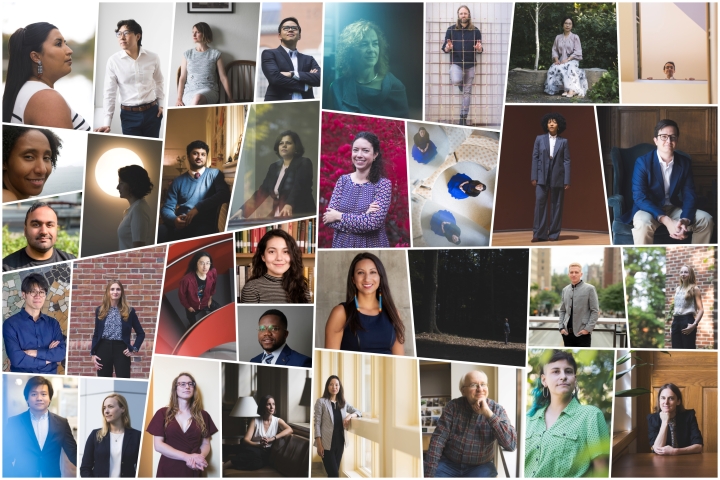
Dartmouth is welcoming 34 new faculty to campus this academic year, scholars whose expertise ranges from AI-powered wearable devices to Chinese poetry to the relationship between tribal sovereignty and reproductive sovereignty.
The tenured and tenure-track faculty in Arts and Sciences, the Geisel School of Medicine, Thayer School of Engineering, and Guarini School of Graduate and Advanced Studies are delving into such fields as anthropology, biomedical data science, environmental soil science, studio art and sound, engineering, and health economics.
“I’m excited by the potential of these new professors’ scholarship, the passion they bring to their work, and the impact they will have in their fields and on our students,” says President Sian Leah Beilock, a cognitive scientist and a professor of psychological and brain sciences.
“They combine the academic insights and commitment to innovation that have always been hallmarks of Dartmouth’s faculty.”
Emily Behrman
Assistant Professor of Biological Sciences
Education: BA, Williams College | PhD, University of Pennsylvania
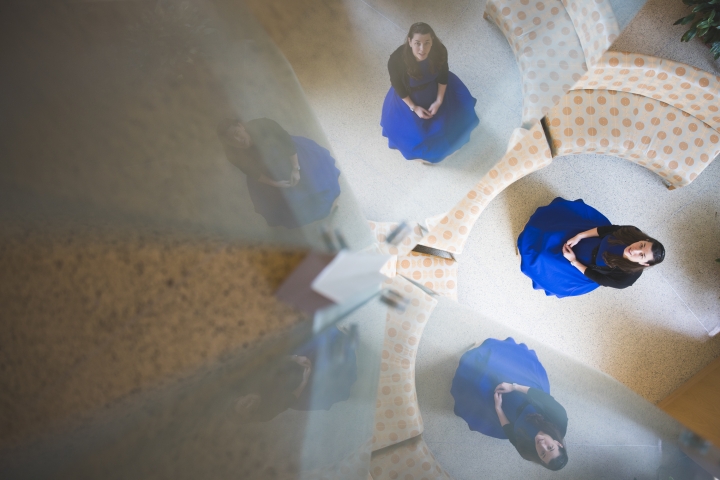
I use fruit flies to study behavior evolution across a broad range of biological organizations, from identifying specific genes that have evolved—dissecting how those genes change the neurons and neural circuits in which they are expressed—to how the behavior at the organism level changes ecological dynamics in natural populations.
Indrani Bhattacharya
Assistant Professor, Department of Biomedical Data Science, Center for Precision Health and Artificial Intelligence, Geisel School of Medicine
Education: BE, Jadavpur University, India | MS, Rensselaer Polytechnic Institute | PhD, Rensselaer Polytechnic Institute | Postdoctoral training, Stanford University
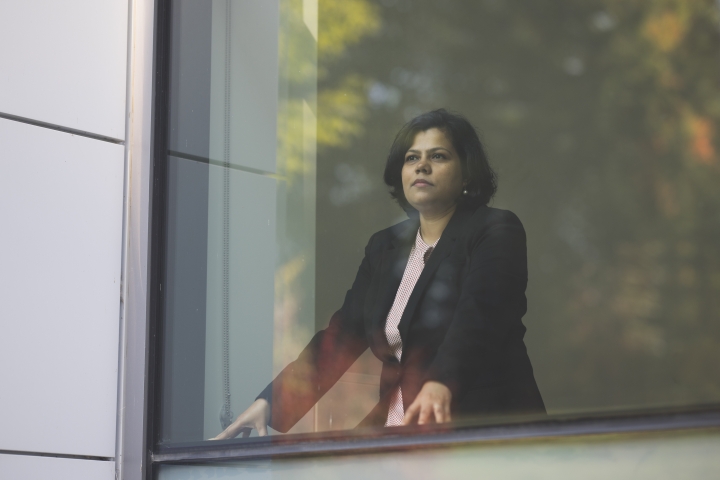
My research interests are in developing translational imaging-based AI-assisted systems for health care applications. I am specifically interested in investigating how to seamlessly integrate and learn from complementary multimodal imaging and nonimaging data for developing these systems. My research focus can be broadly categorized as AI-assisted precision medicine to assist clinicians in early disease detection, characterization, and treatment planning, and AI-assisted behavioral health to assess behavioral health disorders and improve doctor-patient interactions.
Sergey Bratus
Associate Professor of Computer Science; Dartmouth College Distinguished Professor of Cybersecurity, Technology, and Society; Meeting the Challenges of Cybersecurity Academic Cluster
Education: PhD, Northeastern University
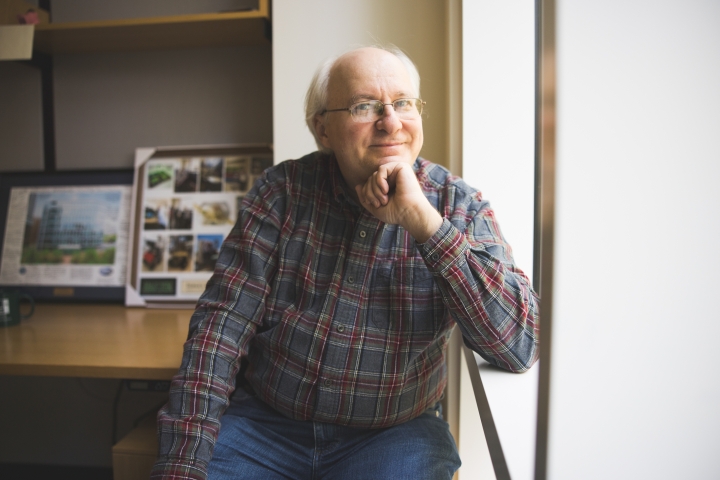
I am interested in all aspects of cyber security, including Unix and Linux kernel security, software verification and cyber hardening, malware detection and reverse engineering (especially at the kernel and boot-stage firmware levels), wireless networking, digital radio, and visualizations of security-related information. I am interested in identifying and eliminating the root causes of software vulnerabilities, and I believe that this requires connecting state-of-the-art hacking with fundamental concepts of computer science. From 2018-2024, I served as a program manager at the Defense Advanced Research Projects Agency Information Innovation Office, where I created multiple fundamental research programs in cybersecurity, resilience, and sustainment of critical software.
Juliette Bruce
Assistant Professor of Mathematics
Education: BS, University of Michigan | MA, University of Wisconsin, Madison | PhD, University of Wisconsin, Madison
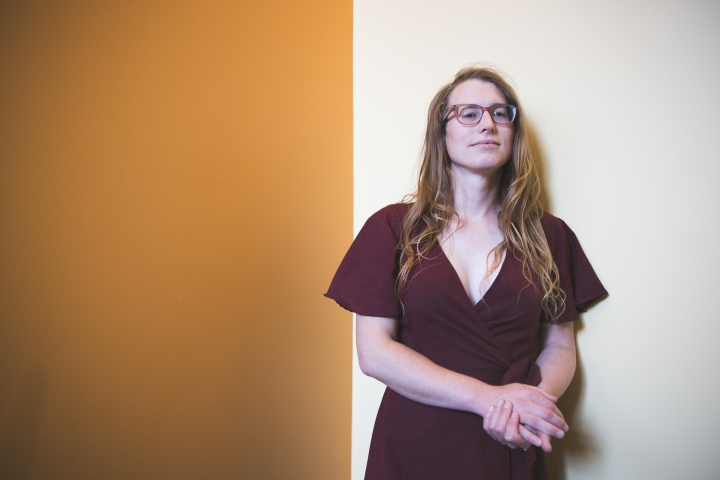
My research lies in the intersection of algebraic geometry and commutative algebra. I am interested in using homological and combinatorial methods to study the geometry of solution sets to systems of polynomials—what mathematicians call algebraic varieties. This generalizes the idea many of us learn in high school algebra that linear and quadratic equations can be understood either by looking at the equations defining them (y=mx+b and y=ax^2+bx+c) or by their graph in the plane (a line and a parabola respectively). Further, I am passionate about promoting inclusion, diversity, and justice in mathematics.
Emma Dean
Assistant Professor of Health Policy and Clinical Practice, Geisel School of Medicine; The Susan J. and Richard M. Levy 1960 Academic Cluster in Health Care Delivery
Education: BS, Cornell University | MS, Wharton School, University of Pennsylvania | PhD, Wharton School, University of Pennsylvania
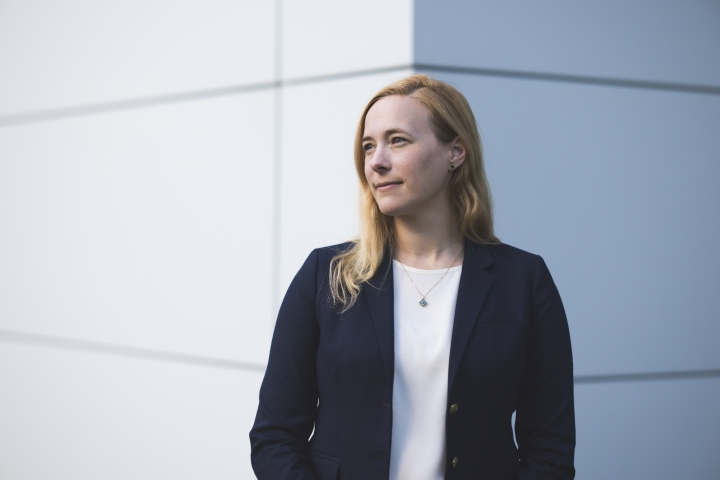
I am a health economist whose research focuses primarily on the pharmaceutical industry, including both domestic and global settings. Most markets are analyzed as interactions between buyers and sellers, but sellers of pharmaceuticals are subject to complex regulations and a chain of intermediaries who themselves respond to incentives. My work sheds light on how these subtleties impact drug prices, utilization, and patient outcomes. Additionally, I research the interrelation of poverty and health.
Meryem Deniz
Assistant Professor of German Studies
Education: ALB, Extension Studies, Harvard University | Graduate School of Arts and Sciences, Special Student Program, Harvard University | PhD, Stanford University
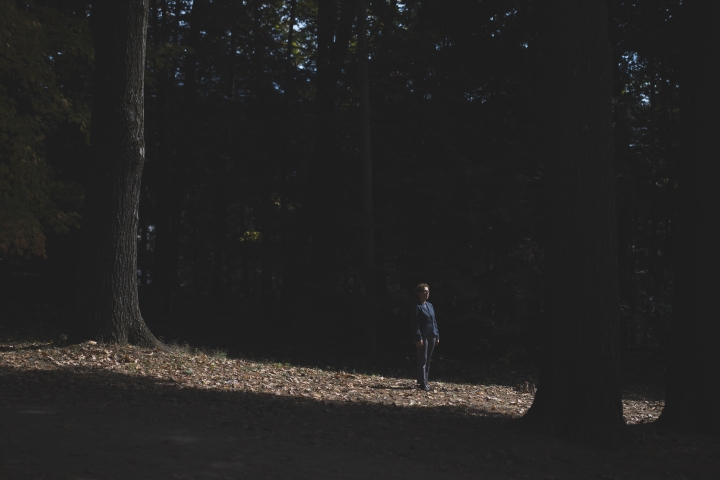
My research and teaching focus on late 18th- and early 19th-century German literature and poetics, contemporary transnational literature, and migration studies as they intersect with the environmental humanities and (new) materialisms.
Madelyn Frumkin
Assistant Professor of Biomedical Data Science and Psychiatry, Geisel School of Medicine
Education: BA, University of North Carolina at Chapel Hill | MA, Washington University in St. Louis | PhD, Washington University in St. Louis
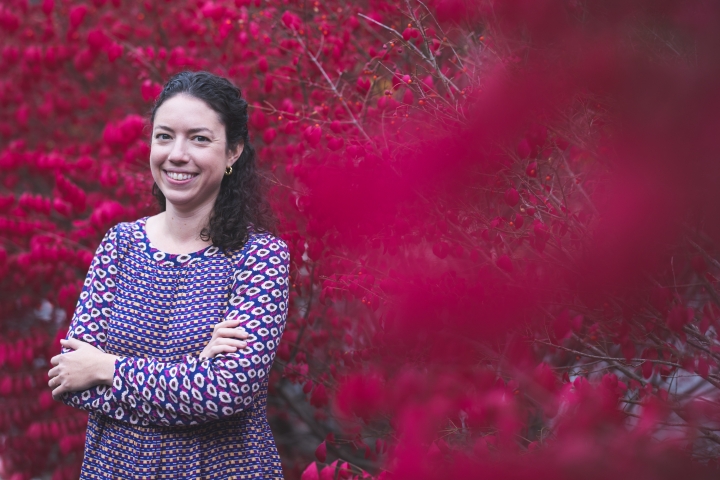
My work sits at the intersection of clinical psychology and data science. I collect data in individuals’ daily lives via smartphones and wearable devices to understand how biological, psychological, and social processes are related within people over time. I am especially interested in leveraging individual differences to phenotype chronic pain and arrive at data-driven treatment recommendations. I also examine patient and provider perceptions of the benefits and risks of technology in clinical care.
Anaïs Galdin
Assistant Professor of Business Administration, Tuck School of Business, Economics Group
Education: BA, Sciences Po Paris | MSc, Sciences Po Paris | MA, Princeton University | PhD, Princeton University
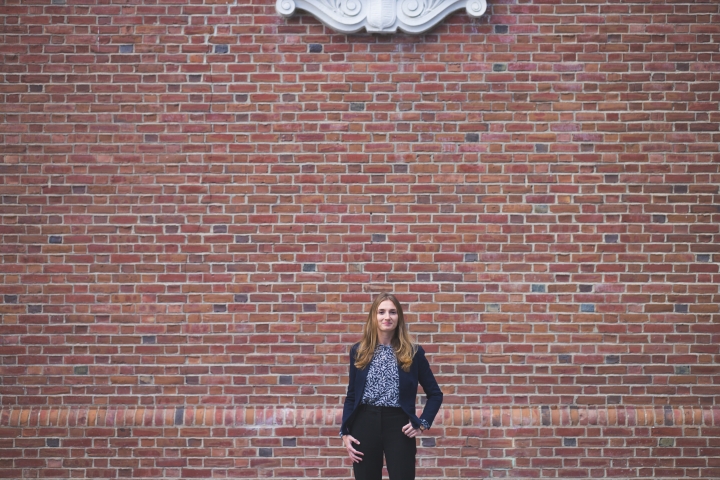
I am a trade economist using empirical industrial organization methods to study changes in product characteristics and availability in globalized markets. My first research agenda focuses on the resilience of global pharmaceutical supply chains, including traceability and quality issues, shortages, and the impact of cross-country regulatory differences on global drug distribution. My second research agenda investigates digital platforms and service trade across borders, in the context of the rise of international freelancing platforms.
Molly Geidel
Associate Professor of Women’s, Gender, and Sexuality Studies
Education: BA, Brown University | MA, UMass Boston | PhD, Boston University
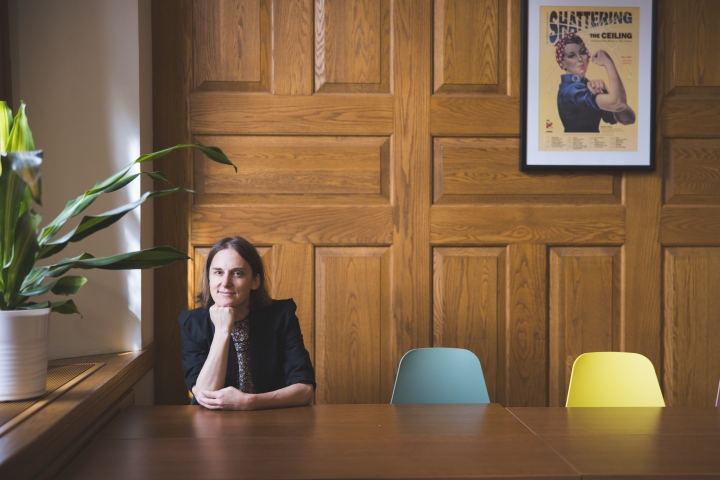
I study the history and culture of international development from a feminist perspective. My first book was a cultural history of the 1960s Peace Corps, and my second, forthcoming book is an account of documentary film and international development in the Americas. My third book will be a short account of the figure of the girl in development and counterinsurgency from the 1990s to the present.
Irene Georgakoudi ’93
Professor of Engineering, Thayer School of Engineering; Co-Director, Translational Engineering in Cancer Research Program, Dartmouth Cancer Center
Education: BA, Dartmouth College | MSc, University of Rochester | PhD, University of Rochester
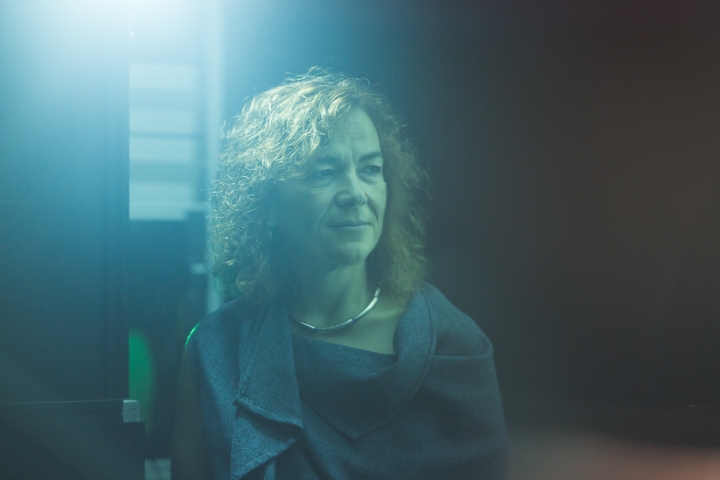
I work on developing noninvasive technologies that harness the natural “glow” of cellular and extracellular tissue components, to enable a new level of understanding of tissue function and dysfunction over a wide range of spatiotemporal scales. My goal is to bring the microscope to the patient to monitor with subcellular resolution key morphological and metabolism-focused functional features without exogenous contrast agents or biopsies. Efforts focus on cancer detection and treatment, neurodegenerative diseases, and aging.
Johnny Huynh
Assistant Professor of Health Policy and Clinical Practice, Geisel School of Medicine; The Susan J. and Richard M. Levy 1960 Academic Cluster in Health Care Delivery
Education: BA, Pomona College | MA, University of California, Los Angeles | PhD, University of California, Los Angeles
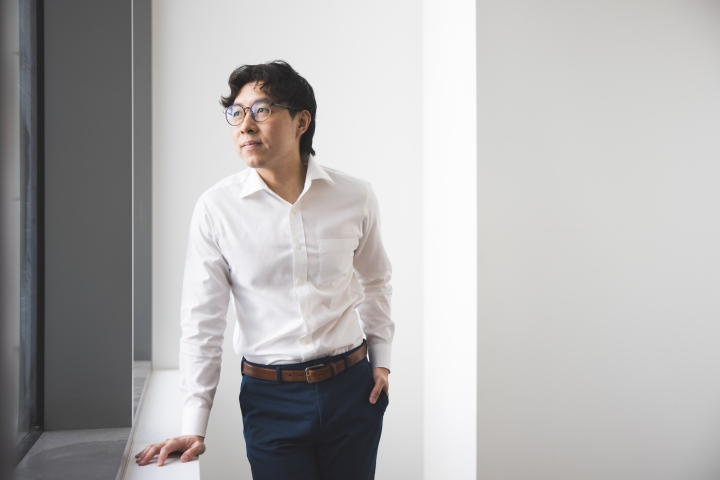
I am a health economist whose research uses econometric methods to address questions about health care access and inequity, particularly among underserved populations. My work is driven by a passion for improving population health through rigorous evaluation of social policies and by recognizing the roles of families, work, and schools in building healthier communities.
Siddhartha Jayanti
Assistant Professor of Computer Science
Education: BSE, Princeton University | MS, Massachusetts Institute of Technology | PhD, Massachusetts Institute of Technology
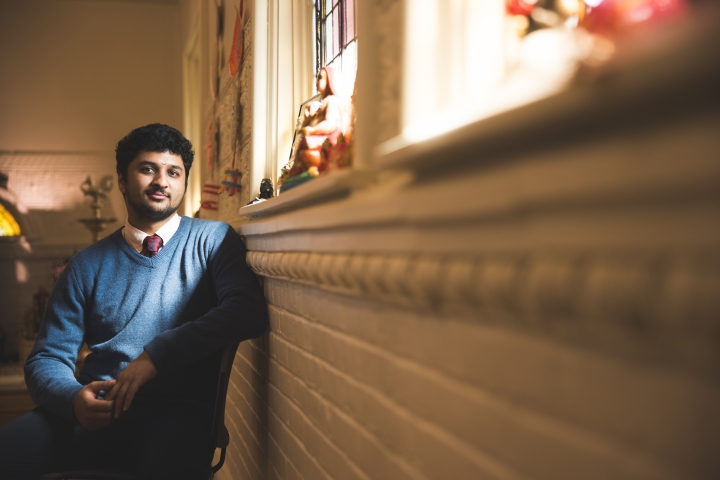
I am a computer scientist whose work spans algorithms, distributed systems, verification, economics, security, and machine learning. My research focuses on designing simple, fast, scalable, and reliable solutions to challenging multidisciplinary problems. Prior to joining Dartmouth, I worked as a research scientist at Google Research and AI in Cambridge, MA, where I designed and deployed fast and formally verified multiprocessor and distributed algorithms for large-scale data mining and clustering.
Lydia Jennings
Assistant Professor of Environmental Studies, E.E. Just Early Career Faculty Fellow
Education: BS, California State University, Monterey Bay | PhD, University of Arizona
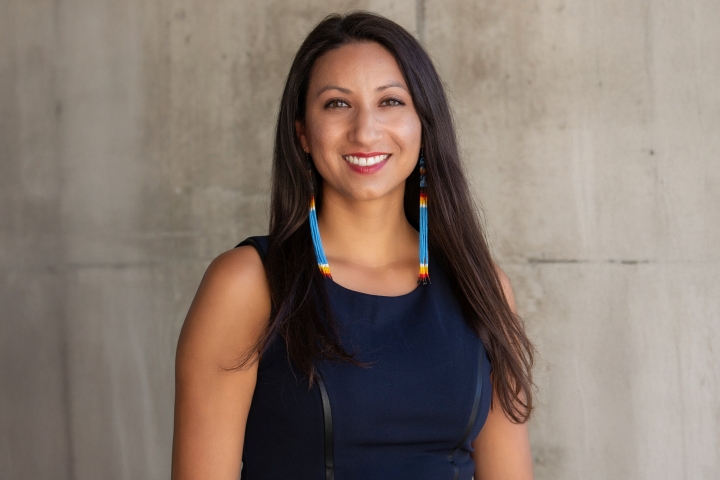
I am an environmental soil scientist and a citizen of the Pascua Yaqui Tribe (Yoeme) and Huichol (Wixáritari). My research interests are in soil health, environmental remediation, Indigenous science, Indigenous data sovereignty, and science communication. Outside of my scholarship, I am passionate about connecting my work to outdoor spaces, through running, kayaking, and increasing representation in outdoor recreation.
Tami Kim
Associate Professor of Business Administration, Tuck School of Business, Marketing Research Group
Education: AB, Harvard College | DBA, Harvard Business School
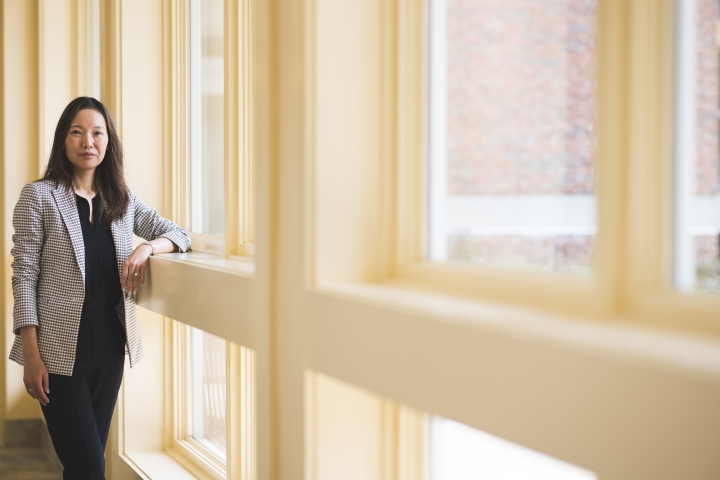
My expertise lies in leveraging behavioral insights to enhance customer experiences through both quantitative and qualitative methods. My work has ranged from optimizing user experiences on digital platforms—for instance, by understanding how social media has reshaped the concept of free speech—to creating more inclusive and equitable consumer marketplaces to exploring how firms can leverage transparency to build trust with consumers.
Danielle Lucero
Mellon Faculty Fellow and Assistant Professor of Native American and Indigenous Studies
Education: BA, Columbia University | MA, Harvard University | PhD, Arizona State University
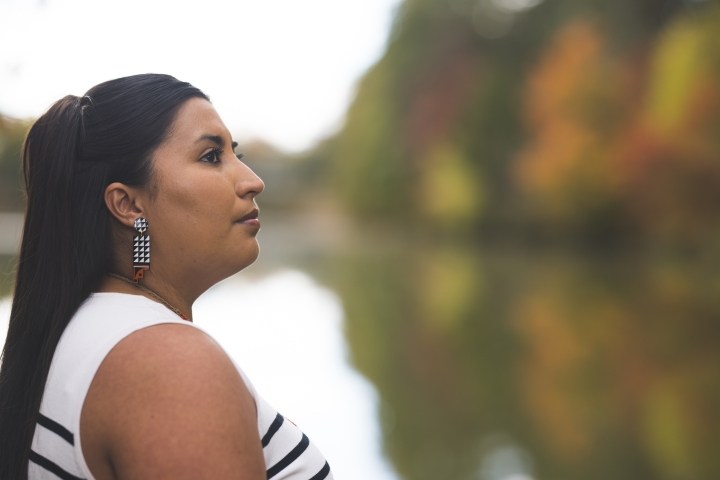
I am a scholar of reproductive justice and history who focuses on Indigenous feminisms and Pueblo Indian histories. My current research explores the relationship between tribal sovereignty and reproductive sovereignty. I investigate the connections between Indigenous women’s experiences with reproductive and social labor, tribal governance/enrollment, and exploring the connections between identity, belonging, place, and gender. I specifically explore the historical and contemporary experiences of Pueblo women in the Southwest. My research is prompted by statements like “you don’t have to marry her, just have a baby with her.” I use critical Indigenous research methodologies, ethnography, and visual ethnography.
Jens Mahlmann
Visiting Scholar/Incoming Assistant Professor of Physics and Astronomy
Education: BSc, Leibniz University Hannover, Germany | MSc, Leibniz University of Hannover, Germany | PhD, University of Valencia, Spain
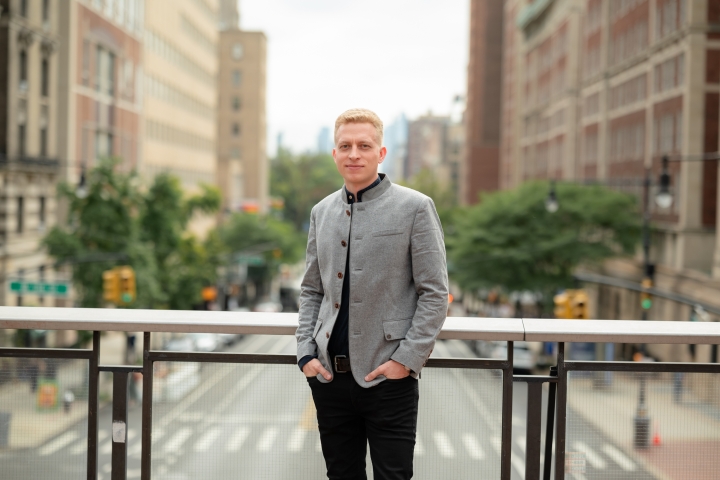
I study high-energy astrophysical processes around neutron stars and black holes using supercomputers. My research examines extreme plasma activity in magnetars, focusing on plasma origins and the generation of X-ray bursts and radio transients. Drawing inspiration from planetary magnetospheres, I push the understanding of physics in extreme cosmic environments. I value communication and mediation to promote collaboration and inclusivity in my research group.
Nicole Saffold Maskiell
Associate Professor of African and African American Studies
Education: AB, Harvard University | MA, Cornell University | PhD, Cornell University

I specialize in the colonial history of the Northeast, with a focus on overlapping networks of slavery in the Dutch and British Atlantic worlds. My current project, Aunt Hagar’s Children, is a gendered analysis of enslavement among Dutch-descended populations across the Northeast and examines the tradition of nonwhite female storytellers in passing down and preserving insurgent histories of slavery in the North.
Madeleine McLeester
Assistant Professor of Anthropology
Education: BA, University of Chicago | MA, University of Chicago | PhD, University of Chicago

I am an environmental archaeologist who investigates ancient agricultural practices in marginal environments in precontact eastern North America. I specialize in pollen and stable isotopic approaches as well as historical record analyses, using datasets from aerial photography to ethnobotanical texts. My research broadly investigates anthropogenic landscapes, plant collection, human-environment entanglements, early colonial encounters, and sports. I am currently directing a collaborative archaeological field project with the Menominee Indian Tribe of Wisconsin as well as additional projects in Michigan and Maine.
Yoshihiro Nakayama
Assistant Professor of Engineering, Thayer School of Engineering; Changing Polar Regions Academic Cluster
Education: BS, Nagoya University | MA, Hokkaido University | PhD, University of Bremen

I aim at understanding the past, present, and future states of the Southern Ocean and identifying the causes of ocean warming and Antarctic ice loss on various time scales by conducting oceanographic observations, improving ocean simulations achieving high model-data agreement, and developing ice-ocean coupled simulations.
Hung Nguyen
Assistant Professor of Engineering, Thayer School of Engineering
Education: AS, Northern Virginia Community College | BS, University of North Carolina at Chapel Hill | PhD, Massachusetts Institute of Technology
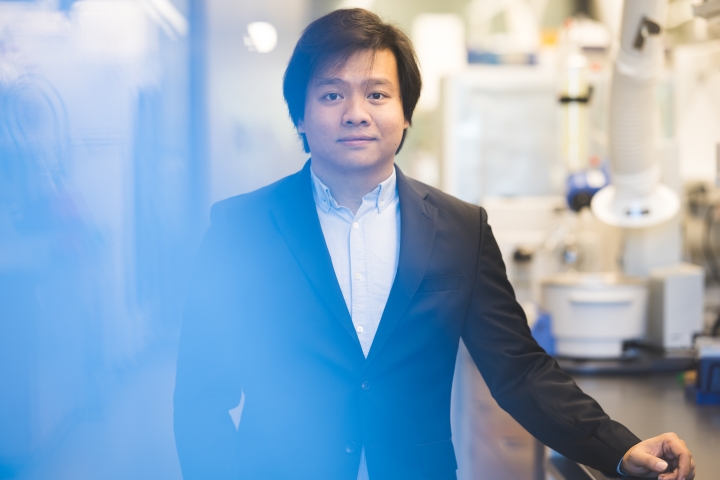
My research aims to develop novel platforms and technologies for nanomedicine and drug delivery applications. This is achieved by leveraging advancements in synthetic polymer chemistry, molecular engineering, cancer biology, and precision medicine—comprising a convergent engineering toolbox. This would, in turn, enable us to examine complex biological questions, as well as to translate novel therapeutics. Ongoing projects focus on the areas of combination therapy, cancer vaccine, and protein corona.
Pia-Kelsey O’Neill
Assistant Professor of Psychological and Brain Sciences
Education: BS, University of California, Los Angeles | PhD, Columbia University

I study how populations of neurons within the brain encode emotional experiences. I do this by recording the activity of many individual neurons in mice as they learn and adapt their responses to aversive or rewarding stimuli. With these large-scale datasets, we can ask how a finite set of neurons can flexibly represent the many features of an animal’s experience. I am currently interested in describing the contribution of projection-defined neural populations within the brain’s amygdala as mice enact a sequence of defensive responses such as freezing and fleeing from an aversive stimulus.
E. Ornelas
Mellon Faculty Fellow and Assistant Professor of Native American and Indigenous Studies
Education: BA, Portland State University | MA, University of Wisconsin, Madison | PhD, University of Minnesota, Twin Cities
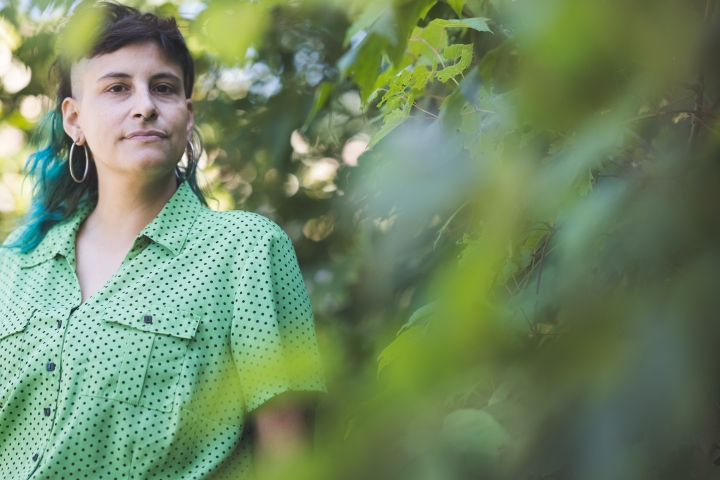
I study community-based, abolitionist-informed responses to gendered, racialized, and colonial violence in Black and Indigenous feminist speculative fiction. This work has been featured in The International Journal of Critical Indigenous Studies, The Science Fiction Research Association Review, Coils of the Serpent: Journal for the Study of Contemporary Power, Utopian Studies, and TSQ: Transgender Studies Quarterly.
Mary Pena
Mellon Faculty Fellow and Assistant Professor of Anthropology
Education: BA, Queens College | PhD, University of Michigan
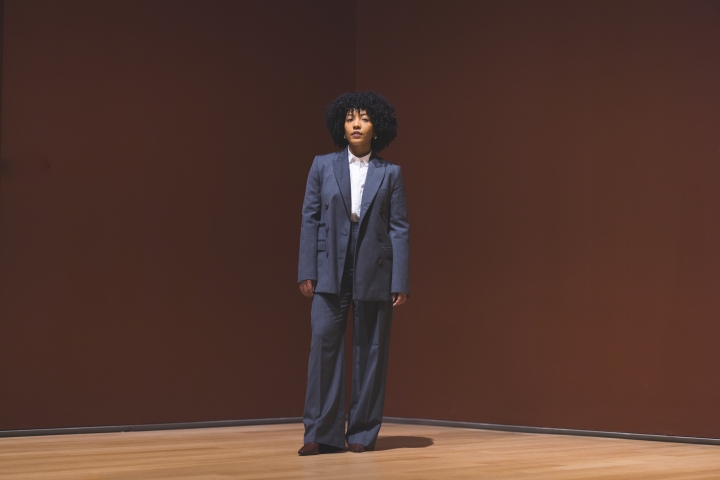
My research focuses on the built environment and material cultures of Afro-descendant people in the Caribbean and its diasporas. My first book project combines ethnographic, archival, and sensory methods to analyze the politics and aesthetics of tourism-driven urban renewal in Puerto Plata, an Atlantic port city in the Dominican Republic. I centralize how residents perceive urban change and relate to time and space through its materiality. I also explore questions of race, gender, and the environment through multimodal scholarship, curation, and collaborative digital humanities projects.
Xin Qi
Assistant Professor of Chemistry
Education: BSE, University of Iowa | PhD, Pennsylvania State University
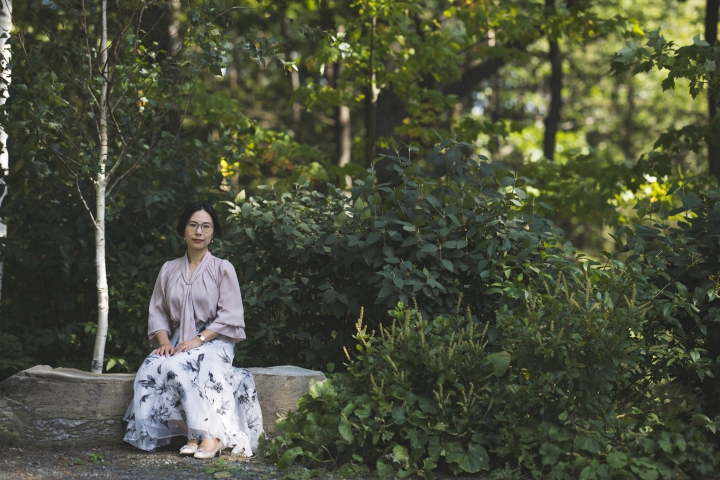
My lab aims to achieve computation-guided inverse materials design by coupling chemistry concepts and theoretical tools to address today’s grand challenges, such as energy and environmental crises. The two main areas of interest are heterogeneous catalysis and photonic and photoelectric applications of solid-state nanocrystals. My lab maintains a strong tradition of experimental collaboration and always welcomes new ideas and collaborators.
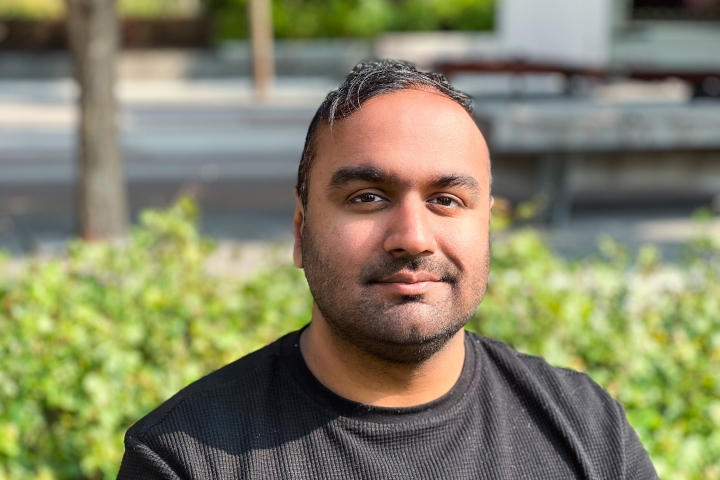
I’m broadly interested in how AI and machine learning can augment human ingenuity across application areas including creative, immersive, and informational media. I investigate this primarily through developing multimodal machine learning systems and studying human-AI interaction. I have a special interest in topics related to sound and music, drawing on my extensive background in these areas.
Chris Sollars
Associate Professor of Studio Art
Education: BFA, Rhode Island School of Design | MFA, Bard College Milton Avery Graduate School

I am a multidisciplinary artist and musician who works in the streets and landscape in order to have immediate interaction with a public audience and to collect society’s detritus, trash, and artifacts for sculptures. My process, physical as well as conceptual, collides dissimilar materials to create unexpected and derisory forms, while commenting on larger societal issues, especially global warming. The documentation of these actions through photography, sound, and video creates the basis for installations that are often absurd and comedic. My courses focus on environmentalism, sculpture, performance, and audio-video installations.
Salim Tayou
Assistant Professor of Mathematics
Education: BA, École Normale Supérieure ULM | MA, Sorbonne Université | PhD, Université Paris-Sud-Orsay
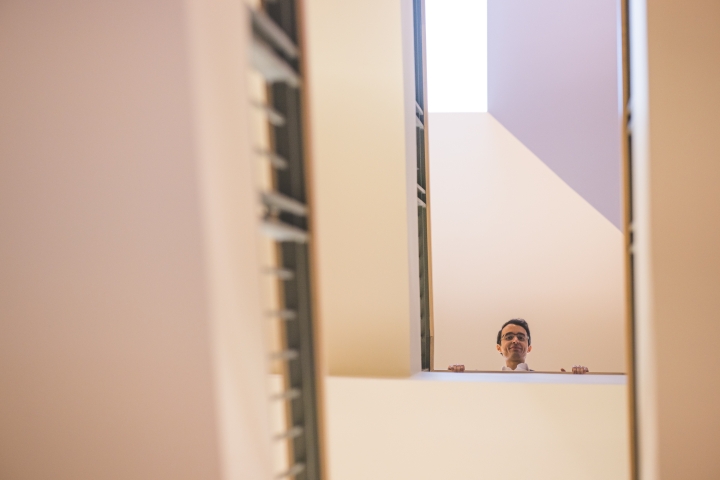
My work lies at the intersection of two mathematical fields: algebraic geometry and number theory. Algebraic geometry uses equations and other algebraic tools to better understand geometric shapes and their properties. Meanwhile, number theory focuses on finding solutions with integer entries to algebraic equations. These two areas are related by a web of fascinating conjectures (such as the Hodge and the Tate conjecture), and my research aims to provide evidence toward these conjectures.
Gabriel Voelcker
Assistant Professor of Business Administration, Tuck School of Business, Accounting Research Group
Education: BA, Universidade Federal do Rio Grande do Sul | MS, Universidade do Vale do Rio dos Sinos | MS, Sloan School of Management, Massachusetts Institute of Technology | PhD, Massachusetts Institute of Technology
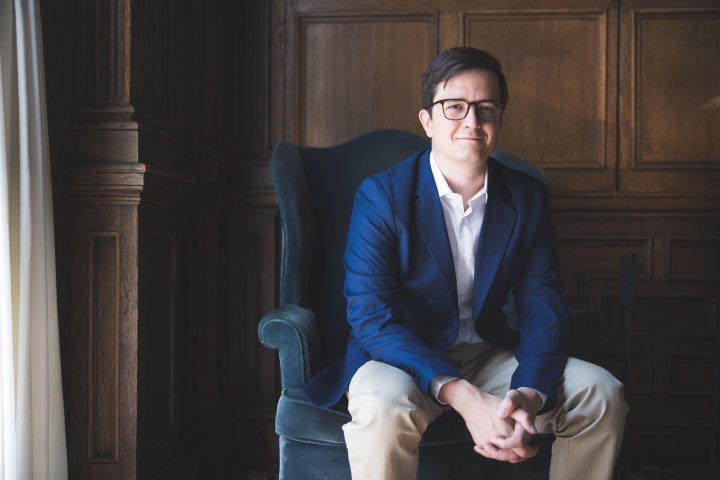
My research uses the latest econometrics and AI techniques to investigate corporate governance, financial disclosure, capital markets, and their intersection with social welfare topics. Additionally, I’m interested in connecting information processing costs to real-life applications.
Tam Vu
Thomas A. and Georgina Tugwell Russo 1977 Distinguished Professor of Computer Science;
Improving Health Care Outcomes Through Sensory Technology Academic Cluster
Education: BA, Hanoi University of Science and Technology | PhD, Rutgers University
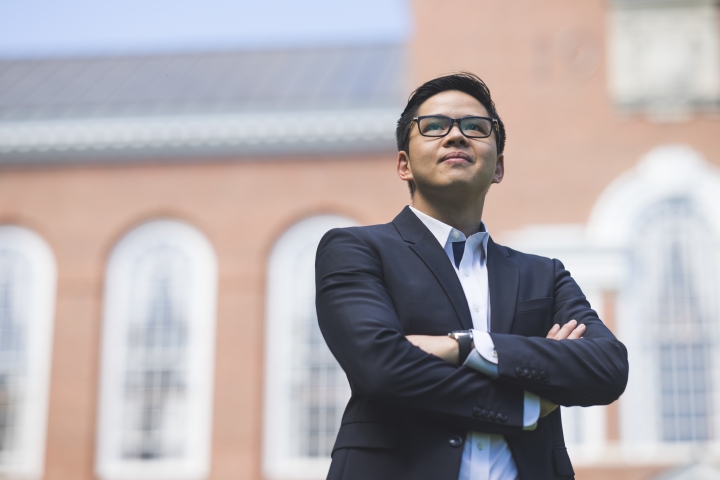
My research centers on developing AI-powered wearables with innovative sensing technologies and real-time stimulation that not only track but also enhance cognitive functions, human performance, and overall well-being. I’m driven by the potential of these technologies to push the boundaries of human performance and longevity, exploring how they can redefine what’s possible for the future of human intelligence and health.
Ao Wang
Associate Professor of Asian Societies, Languages and Cultures
Education: BA, Peking University | MA, Washington University in St. Louis | PhD, Yale University
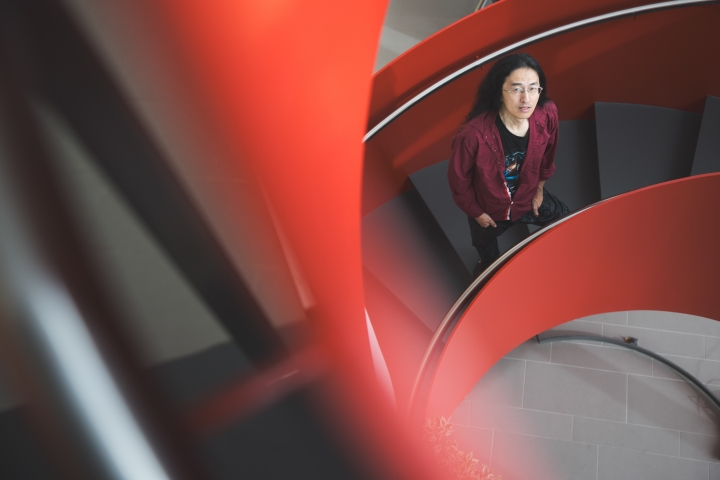
My research focuses primarily on Chinese poetry and its intersections with other literary genres and intellectual fields. I write literary criticism in both my native Chinese and English. I have received awards for my own poetry, including the 2016 Shi Jianshe New Poet Prize and the 2014 Renmin Wenxue New Writer Prize, and I translate poetry from and into Chinese, including works of Wallace Stevens, W. H. Auden, and Seamus Heaney.
Shelley Warlow
Assistant Professor of Psychological and Brain Sciences
Education: BA and BS, University of Washington | MS, University of Michigan | PhD, University of Michigan

I am a behavioral neuroscientist interested in understanding how the brain generates motivated behavior. My research examines how neural circuits in the brain contribute to reward and aversion. For example, are distinct cell types dedicated to the pursuit of rewards such as food, whereas separate populations contribute to avoiding threats? By understanding how neural circuits generate reward and aversion, we can better treat disorders of imbalanced motivation such as addiction or bipolar disorder.
Angela Wyse
Assistant Professor of Economics
Education: BA, University of Michigan | MPP, Harvard University | PhD, University of Chicago
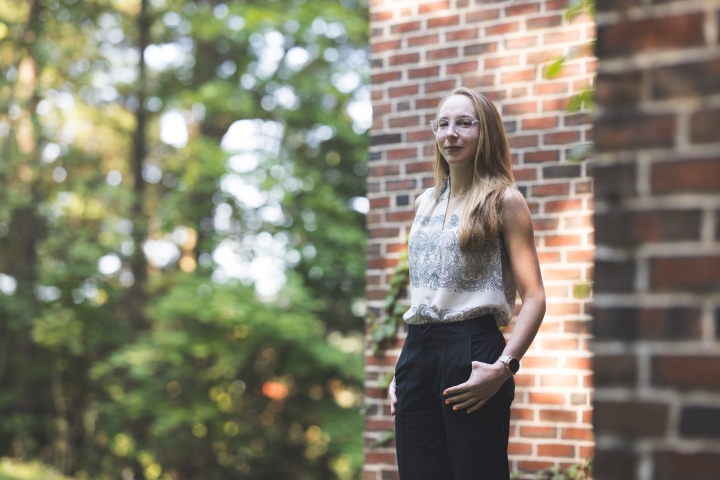
I study homelessness, poverty, and the causal effects of safety net programs on the health and well-being of disadvantaged and difficult-to-study populations in the United States. My current research leverages new data sources and innovative linkages to examine fundamental questions about people experiencing homelessness, including population size, mortality, income and safety-net participation, housing status transitions, and migration.
Mahounan Yedomiffi
Provost Faculty Fellow and Assistant Professor of Economics
Education: BA, University of Abomey-Calavi | MSc, African School of Economics | PhD, University of Illinois at Urbana-Champaign
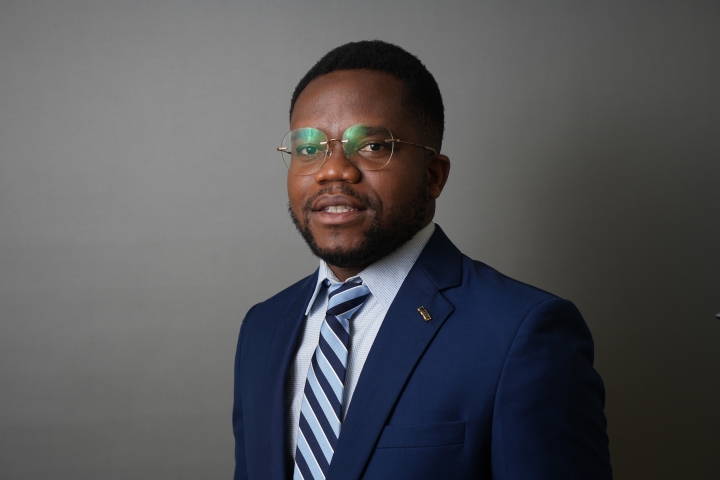
My work aims to provide evidence-based solutions that enhance access to education, improve student performance, and address financial challenges faced by households in developing countries. Through rigorous field experiments and collaboration with various stakeholders, I seek to contribute to sustainable development and poverty alleviation.
Muni Zhou
Assistant Professor of Physics and Astronomy
Education: BSc, Zhejiang University | PhD, Massachusetts Institute of Technology
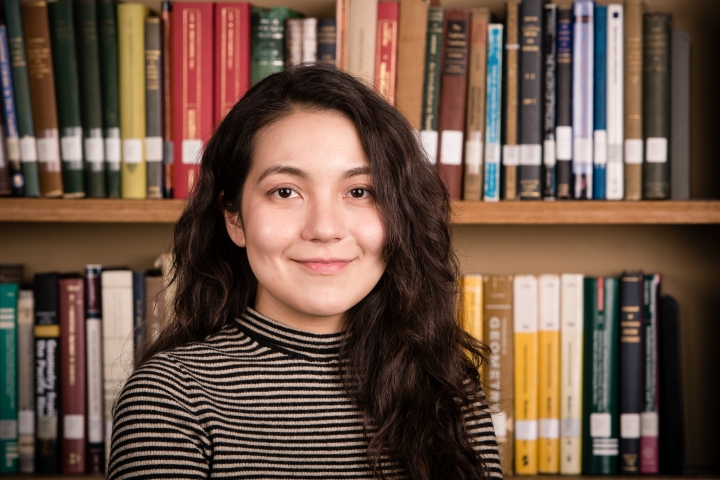
I study plasma physics using a combination of analytic theory and numerical experiments. I explore the role of multiscale plasma processes in a wide range of space and astrophysical systems as well as nuclear fusion devices, most of which are in a turbulent state. My current research focuses include the origin of cosmic magnetic fields, plasma turbulence and dynamics in radiation-rich environments, and statistical descriptions for nonequilibrium plasma states.
